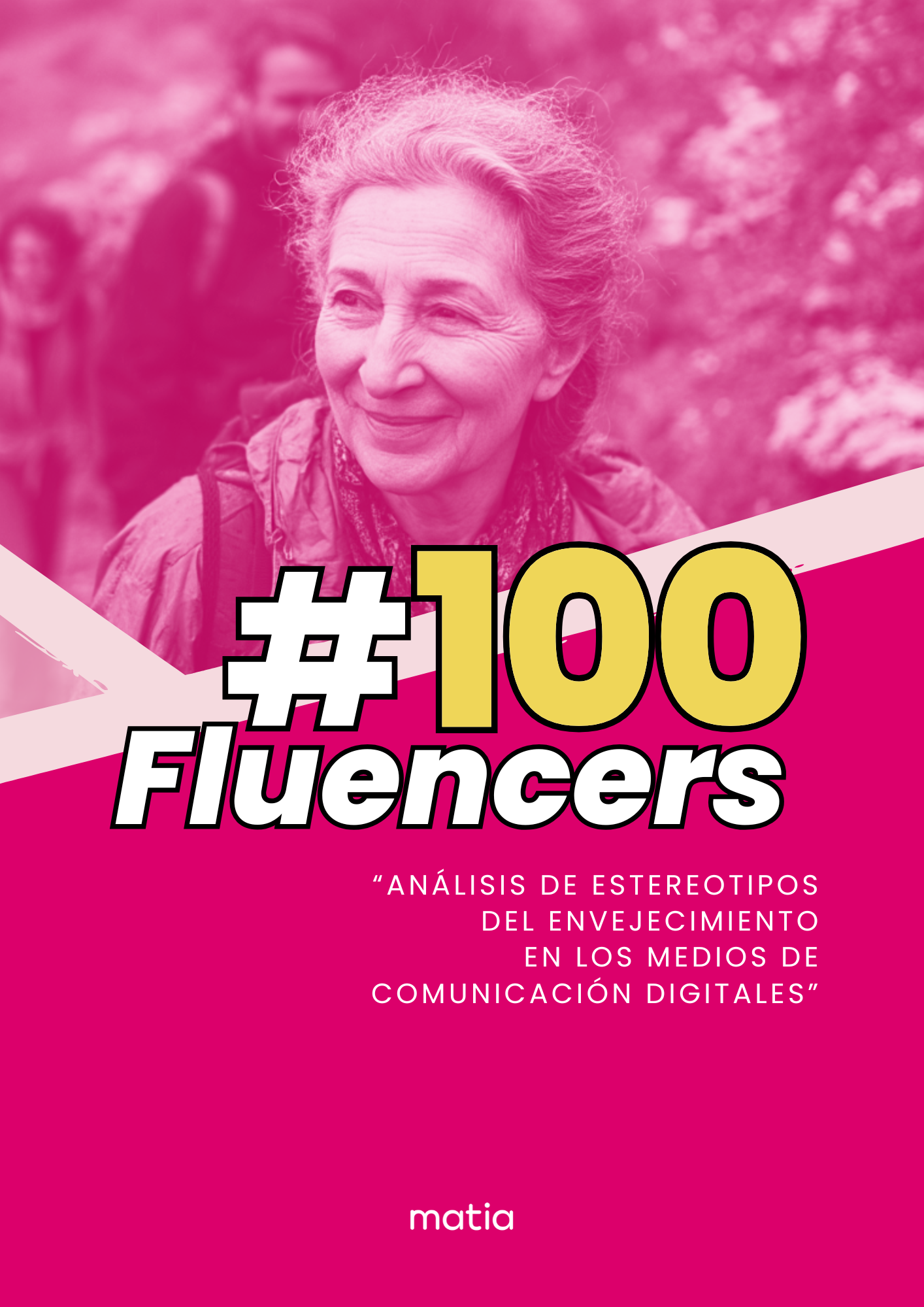#100Fluencers: “An Analysis of Aging Stereotypes in Digital Media”

This report, driven by MatiaZaleak, is a pioneering study that examines how older adults are represented in the digital environment. Its objective is to raise awareness of and combat ageism by promoting a fairer, more diverse, and realistic portrayal of aging. The study analyzes a corpus of 1,248 digital news articles published between 2023 and 2024, using a mixed-methods approach that combines artificial intelligence (AI) with critical human analysis.
Both textual content (headlines and article bodies) and visual elements (images) are examined, with narrative approaches classified into four categories: neutral/institutional (52%), negative (22%), positive/empowering (15%), and unclassifiable or ambiguous (11%). The findings reveal a clear predominance of neutral or negative representations, where older adults are depicted as statistics, patients, or passive recipients of public policies.
These visual narratives reinforce stereotypes of dependency, frailty, and social disengagement. Associated images often show older individuals alone, in medicalized settings, or lacking visual prominence, thereby consolidating a homogeneous and care-based imaginary. In contrast, news articles with a positive focus—though in the minority—highlight experiences of active aging, social participation, and empowerment. However, such portrayals are often treated as exceptional, limiting their transformative potential. Additionally, there is a notable lack of diversity in terms of gender, ethnicity, sexual orientation, or territorial context, which renders multiple realities of aging invisible.
The report also analyzes the influence of media type on the construction of these narratives, formulates a series of recommendations, and proposes practical tools—such as ageism analysis prompts and non-stereotypical image banks—to improve the media representation of older adults.


